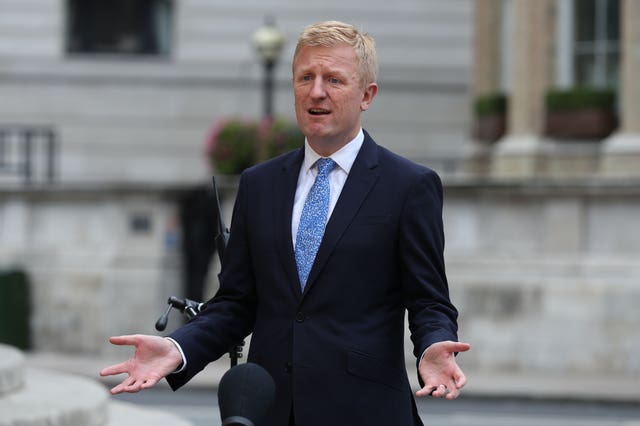
Clive Bull 1am - 4am
26 March 2021, 00:04

The children’s charity said youngsters would be placed at greater risk if the platform went ahead with plans to introduce end-to-end encryption.
More than half of the online child sex crimes in one year took place on Facebook-owned apps, data from the NSPCC suggests, as the charity called for more to be done to tackle abuse in private messaging.
Facebook has previously revealed plans to make messaging across its apps, including Instagram and Facebook Messenger, end-to-end encrypted like another of its services – WhatsApp – to boost user privacy.
But the children’s charity argued that these figures, gathered through Freedom of Information requests to police forces, show that Facebook’s encryption plans will leave children at greater risk and accused the social media giant of “turning back the clock on children’s safety”.
The NSPCC said the data it received showed 9,477 instances of sexual or indecent image offences against children were recorded by police between October 2019 and September 2020 where the communication platform was known, with 52% taking place on Facebook-owned apps.
The figures showed that Instagram was used more than any other Facebook platform – in more than a third of all instances, ahead of Facebook Messenger and WhatsApp.
The data were gathered from 35 police forces in England, Wales and the Channel Islands.
The NSPCC argued that should Facebook go ahead with its encryption plans, many of these offences could go unreported in future unless new safeguards were put in place.
As a result, the charity has urged the Government to strengthen the powers of the forthcoming Online Safety Bill to allow the proposed regulator, Ofcom, to take action against firms whose design choices could put children at risk.
It argues that although end-to-end encryption offers a number of benefits, including improved privacy, it will hinder the ability of platforms and law enforcement agencies to identify and disrupt child abuse.
“Facebook is willingly turning back the clock on children’s safety by pushing ahead with end-to-end encryption despite repeated warnings that their apps will facilitate more serious abuse more often,” said Andy Burrows, NSPCC head of child safety online policy.

“This underlines exactly why (Culture Secretary) Oliver Dowden must introduce a truly landmark Online Safety Bill that makes sure child protection is no longer a choice for tech firms and resets industry standards in favour of children.
“If legislation is going to deliver meaningful change it needs to be strengthened to decisively tackle abuse in private messaging, one of the biggest threats to children online.”
Last month, a senior official at the National Crime Agency said Facebook’s encryption plan “poses an existential threat to child protection”.
End-to-end encryption is the practice of securing communications from everyone but the participants, including the platforms hosting the conversation.
In response to the research, a Facebook company spokesperson said: “Child exploitation has no place on our platforms and we will continue to lead the industry in developing new ways to prevent, detect and respond to abuse.
“For example, last week we announced new safety features on Instagram including preventing adults from messaging under 18s who don’t follow them.
“End-to-end encryption is already the leading security technology used by many services to keep people, including children, safe from having their private information hacked and stolen.
“Its full rollout on our messaging services is a long-term project and we are building strong safety measures into our plans.”
In response to its latest report and looking to the Online Safety Bill, the NSPCC said it was calling on the Government to shift the onus onto tech firms to show they were identifying and mitigating risk in products before rolling them out, rather than relying on the regulator to prove risk.
It was also calling for the regulator to be given the power to force firms to act before harm has occurred rather than after, and to be able to consider design decisions that could be deemed risky to users.
A Government spokesperson said: “Our Online Safety Bill will bring in world-leading measures to protect children and ensure there is no safe space for paedophiles to hide on social media.
“The burden will fall solely on social media companies to prove they’re doing all they can to keep children safe and they will not be able to use encryption as an excuse.
“End-to-end encryption risks blinding both social media companies and law enforcement to these dreadful crimes and tech companies must put public safety at the heart of their system designs or face heavy fines.”